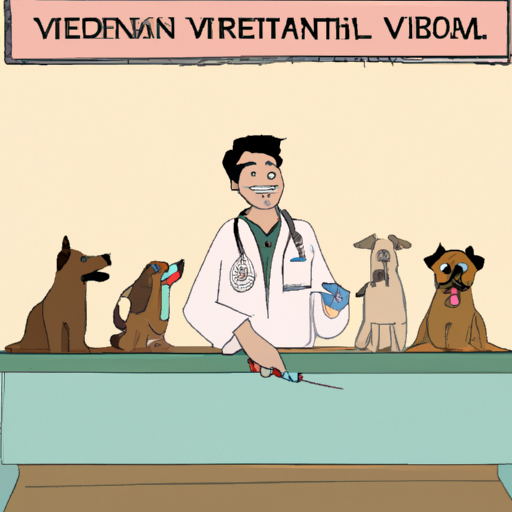Understanding Your Dog’s Vaccination Needs
The care and wellbeing of your furry friend rests in your hands. Like human babies, puppies also require certain vaccinations to protect them from various diseases. The number of vaccines your dog needs depends on several factors such as age, health status, and lifestyle. Here is a list of core vaccines that are essential for every dog:
- Rabies
- Distemper
- Parvovirus
- Hepatitis
Besides these, there are also non-core vaccines that are recommended based on specific needs and risk factors. These include:
- Bordetella
- Leptospirosis
- Lyme
- Canine Influenza
Vaccination Schedule: When and What?
The timing of these vaccinations is very crucial. Puppies receive their first series of vaccinations at six to eight weeks of age and continue to get them every three to four weeks until they are about 16 weeks old.
| Age | Vaccine |
|---|---|
| 6-8 weeks | Distemper, Parvovirus |
| 10-12 weeks | DHPP (vaccines for distemper, adenovirus [hepatitis], parainfluenza, and parvovirus) |
| 12-24 weeks | Rabies |
| 14-16 weeks | DHPP |
| 12-16 months | Rabies, DHPP |
Factors Influencing the Number of Vaccines
Remember, not all dogs need the same number of vaccines. For instance, a dog living in a rural area might need a leptospirosis vaccine, while a dog in a city apartment might not. Similarly, a dog that is frequently boarded or goes to doggy daycare would benefit from a Bordetella vaccine. Always consult your vet to create a tailored vaccination plan for your dog.
The Importance of Regular Vet Check-ups
Regular vet visits are not just for when your dog is sick. They play a vital role in preventive healthcare. Regular check-ups enable your vet to catch any potential health issues early and keep your dog’s vaccinations up to date.
Common Misconceptions About Dog Vaccinations
Still on the fence about vaccinating your dog? Let’s debunk some myths. Vaccines do not overload your dog’s immune system, rather they prepare it to fight off diseases. Also, vaccines are not harmful or a ploy to make money. They are proven methods to prevent serious illnesses in dogs.
Frequently Asked Questions
Q: Can I skip my dog’s vaccines if they stay indoors?
A: No. Even indoor dogs can be exposed to viruses.
Q: Are there side effects to dog vaccines?
A: Yes. Side effects are possible but generally mild and short-lived.
Q: How often does my dog need a rabies vaccine?
A: It varies. Some rabies vaccines are given every year, while others are given every three years.
Q: Is it ever too late to start vaccinating my dog?
A: No. It’s never too late to start protecting your dog from harmful diseases with vaccines.
Caring for a dog is a big responsibility, but with the right information and resources, you can ensure your furry friend stays healthy and happy!



